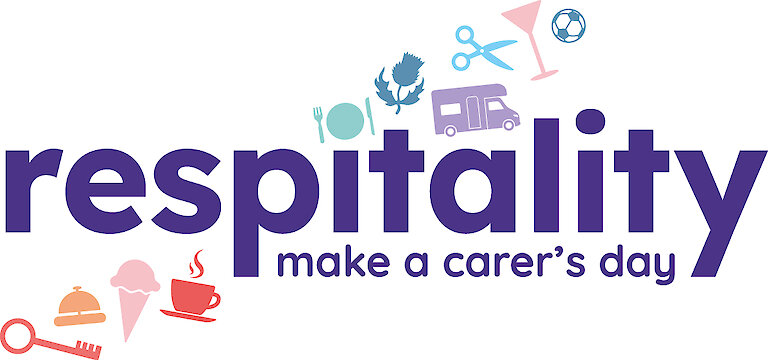Respitality for businesses - HOW TO DONATE
Respitality (respite + hospitality) is a new and effective way in which the hospitality and leisure sector can help their local communities by recognising and appreciating the contribution of unpaid carers.
How does it work?
Respitality involves connecting local organisations that support unpaid carers, with hospitality providers e.g. hotels, guest houses, restaurants, leisure clubs, beauty salons etc. The idea is that hotels, for example, become Respitality Partners by making a ‘gift’ of a short break. The breaks are made available during quieter periods, when it suits the business. This enables a carer to have a break away from their caring responsibilities to recharge their batteries and have a little time for themselves. The carer can access the break themselves, or take a companion with them if they wish to do so. Respite is historically seen as an overnight stay, but there are many other opportunities for carers to access!
To donate a gift or break(s) to the Respitality Scheme, please email carers@shetland.org or telephone: 01595 743980.
For more information, you can view the NEW Respitality animation at: The Respitality Animation on Vimeo
Respitality originated in the US and is currently available in 30 different local authority areas in Scotland. The Scheme is funded through the Scottish Government and co-ordinated through Shared Care Scotland. Since launching the initiative in 2015, Respitality has facilitated breaks for over 6268 carers and 5430 companions with the support of over 586 businesses. In Shetland, since Autumn 2017, we have provided 283 breaks to carers through the Respitality Scheme at an estimated cost to local businesses of £33,384.
19 Local Business have Signed Up to Gift Breaks for 2025:
Aa Fired Up, Brudolff Hotels, Busta House Hotel, Clickimin Complex, Fjara Cafe Bar, Glansin Glass, Hjemli Reflexology, Holistic Yoga Shetland, Isles Reflexology, Ordaal Cottage in Unst, Reset Well-being Therapies, Seabirds-and-Seals, Sea Kayak Shetland, Self Catering Shetland, Shetland Arts, Shetland Jewellery, Soulful Bliss, Steve Henry Motorbike Runs, The Mousa Boat (Shetland) Ltd
More than a quarter of carers (28%) and 41% of carers on Carer’s Allowance are struggling to make ends meet
44% of carers on Carer’s Allowance are cutting back on food and heating
One in six carers on Carer’s Allowance are visiting foodbanks
These findings come from ‘State of Caring in Scotland – The financial impact of caring in 2023’, the first in a series of three reports produced by Carers Scotland, exploring key findings from their annual State of Caring in Scotland survey, which was conducted between June and August this year and completed by 1771 unpaid carers across the country.
The report shows that those who are in receipt of Carer’s Allowance, the main benefit for unpaid carers, have been hit particularly hard by rising prices and the cost-of-living crisis. Four in ten (41%) said that they were struggling to make ends meet and had to cut their expenses to the bone and were falling into debt and arrears as a result.
Even more concerning, the number of unpaid carers on Carer’s Allowance cutting back on essentials, continues to grow - more than doubling since 2021. Today, 44% of these carers are cutting back on food and heating versus 22% just two years ago. This has led to one in six (16%) carers on benefits being forced to visit foodbanks.
The extra costs of caring and fall in income that many carers face, means they cannot afford to take part in social activities anymore. For many carers, their world shrinks. Their role can become one of providing practical care tasks and company to the person they care for, organising and attending medical appointments and monitoring medication, liaising with care workers and other professionals - with little time to spare to think about their own needs.
What are the benefits of Respitality?
1. The break will give carers something to look forward to and a chance to have time out for themselves.
2. Regular, planned breaks be used as a preventative tool to prevent carers from reaching crisis.
3. Gift providers can increase awareness of their business and their community involvement, and the role of carers is further promoted.
‘’Shetland Carers are delighted to be working with Shared Care Scotland to try and offer more short breaks to unpaid carers in Shetland. We are very excited about this project which offers a win-win to both parties: Carers receive a much needed break from their caring responsibilities while Gift Providers give something back to their community and at the same time raise their own profile.’’ ~ Shetland Carers Team

